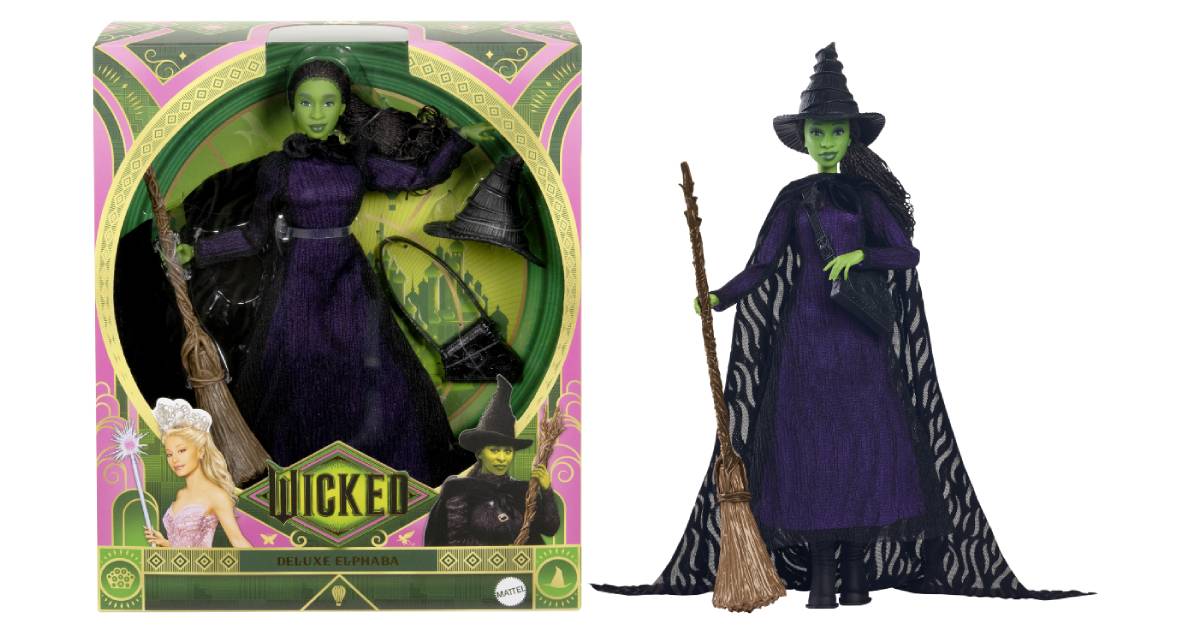Musicals Look for an Encore in Licensing

By Mark Seavy
Stage plays and musicals have historically struggled to land licensing deals, even when adapted into films by studios with extensive experience in launching consumer products programs.
While Hamilton was a hit play that spawned licensing, including a deal for Funko’s Pop! figures, the same didn’t hold true for the subsequent film adaptation of Lin-Manuel Miranda’s first musical In the Heights. And while Phantom of the Opera once had agency representation, the long-running musical didn’t seem to connect in the licensing landscape until Andrew Lloyd Webber’s The Really Useful Group recently landed a deal with streetwear brand Palace Skateboards.
Palace launched a range inspired by the musical in October that including hoodies, t-shirts, jeans, knitwear, and a skateboard deck, available through its website as well as through stores in Los Angeles, New York, London, Tokyo, and Seoul.
Despite landing some agreements, the majority of stage plays and musicals have struggled to find significant placement with retailers to sell licensed products outside of a playgoers’ “in the moment” purchase inside the theater.
“Sometimes if it is an adaptation of an adaptation, you have to wonder whether the market has had enough,” a licensee executive said. “You can look at standalone musicals akin to the music business where, when a band is touring, it has a whole eco-system. How many people walk around with a t-shirt from a musical? It’s more about the in-theater experience.”
The upcoming release of Universal Pictures’ Wicked film, however, is seen as a potential turning point for musical theatre licensing given the extensive consumer products program accompanying the film. Offerings tied to the film—the first of two movies inspired by the musical—include footwear (Ground Up, Crocs), apparel (Biowold, Mad Engine), and bags (Loungefly).
Beyond the upcoming film and the long-running musical it is based on (the first performance took place in 2003), Wicked’s consumer products program also benefits from additional source material—Gregory Maguire’s book Wicked: The Life and Times of the Wicked Witch of the West was published in 1995 and the film The Wizard of Oz was released in 1939, itself inspired by the L. Frank Baum books from the early 1900s.
“In consumer products, sometimes these things are about timing. But, in this case, it’s also about having a catalyst that builds demand and awareness for a new genre to move into retail and for buyers to allocate shelf space,” said Libby Grant, Chief Commercial Officer at Really Useful. “In recent years, we have seen the same for fast-moving consumer goods, museums, and collegiate brands. So, as something that is inherently ingrained in pop culture and such a large part of consumers’ lives, it’s time for musicals to hit the [retail] shelves.”
The burst of licensing around Wicked comes as Really Useful, which was formed by Webber in 1977, undergoes a restructuring (which previously happened in 2011 and 2016). The most recent changes include the hiring of Grant in June and the arrival of new Chief Operating Officer Louise Hughes this month.
With new management, Really Useful is focused on licensing for seven Webber properties—Phantom of the Opera, Cats, Joseph and the Technicolor Dreamcoat, Starlight Express, Jesus Christ Superstar, Evita, and Sunset Boulevard. New licensing deals are expected in early 2025, Grant said.
And while the licensing program is primarily focused on licensing Andrew Lloyd Webber’s musicals to theatre producers who stage his shows globally, Grant said there are also plans to create 360-degree franchises with a spotlight on consumer products and experiences.
“We are now adapting a franchise approach for the core brands in the portfolio and diversifying into new categories, [including] immersive and themed entertainment, publishing, gaming, film and TV, and consumer products.”




